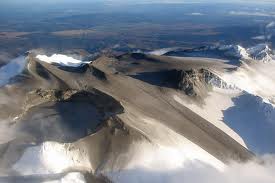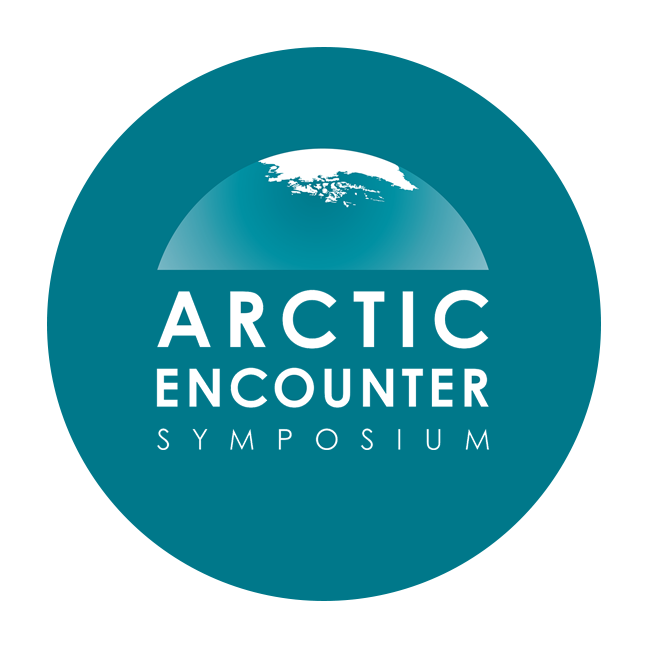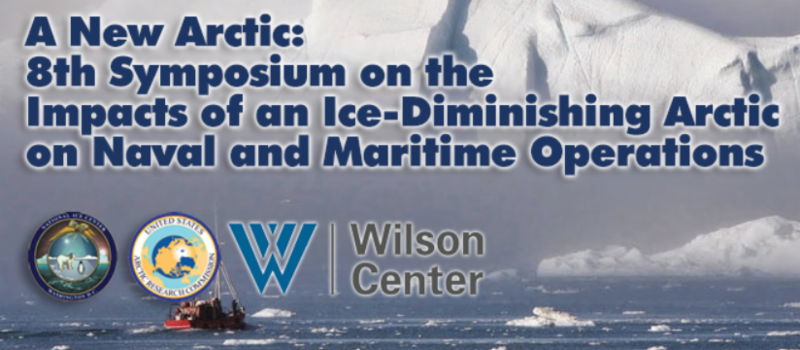|
|
|
|
|
|
|
|
Media
 Arctic Black Carbon Work Hampered by US and Russia, says Finland. Arctic Black Carbon Work Hampered by US and Russia, says Finland. The Arctic region's co-operation in the battle against global warming by reducing black carbon emissions is being hampered by the United States and Russia, the Finnish foreign ministry said on Wednesday. Black carbon, the soot produced by burning fossil fuels and biomass, is an atmospheric pollutant that is particularly problematic in the Arctic region, where it darkens snow and ice, making them retain more warmth and melt faster. Reuters
Study: Thawing Alpine Permafrost a Stealth Source of CO2. As alpine permafrost thaws, new sources of decaying organic matter become available to CO2-emitting microbes. Climate scientists and their models may be underestimating this stealthy source of carbon dioxide, according to a new study. In a paper published Thursday in the journal Nature Communications, scientists presented evidence that Colorado's Front Range tundra emits more CO2 than it absorbs each year, making it a net carbon contributor -- potentially worsening the impacts of climate change. UPI
Sand From Greenland's Melting Ice Sheet Could Bring in Business. The Arctic is warming twice as fast as other parts of the globe, and the hot temperatures are leaving their mark: In Greenland, the ice sheet that covers 80% of the country is rapidly shrinking. The melting ice brings more than just water to the coastline. Ice melt delivers tons of sand and gravel particles offshore, and a recent paper in Nature Sustainability suggests that Greenland could profit from this resource. EOS
Mike Pompeo Expected to Attend Rovaniemi Meeting. Finland's hope for an Arctic Summit with heads of states vanished earlier this year, but this spring, the Arctic Council meeting takes places as planned. Reuters reports with a senior Trump administration official as source that the U.S. will participate at the Arctic Council meeting with Secretary of State Mike Pompeo. "We want to show that we are committed to being an Arctic nations, an Arctic power," the official said. "Chinese action has really focused everyone's minds, including the Russians," the source added. The Barents Observer
The Most Complete Submarine Cartography of the INBIS Channel, in the Arctic Ocean, Published. A scientific study describes for the first time the submarine cartography of a high-latitude system in the IBIS channel, which covers tens of kilometers in the northwestern area of the Barents Sea in the Arctic Ocean. This channel is one of the few submarine valleys in polar latitudes that kept its geological architecture during the Last Glacial Maximum (LGM), according to the new study published in the journal Arktos, to which lecturer José Luis Casamor of the University of Barcelona contributed. Other participants in the research study are experts from the Trieste National Institute of Oceanography and Experimental Geophysics (OGS, Italy) and the University of Tromsø (Norway), among other institutions. Phys.org
 Details of China's Nuclear-Powered Icebreaker Revealed. Details of China's Nuclear-Powered Icebreaker Revealed. Deadline for interested parties to tender the icebreaker was on March 20th after Beijing opened for bids last summer as previously reported by the Barents Observer. Now, China General Nuclear Power Group (CGN) gives more details about the icebreaker to be built by a Chinese shipyard, South China Morning Post reports. The vessel will be 152 meters long (498 feet), 30 meters wide and 18 meters in depth. Displacement will be 30,000 tons. The Barents Observer
Shrinking Seasonal Ice in the Bering Sea Threatens Local Livelihoods. After four years in a row of record low winter sea ice extent, the Arctic received a bit of a reprieve this year. This winter's maximum-the day when sea ice extent is greatest-was likely reached on March 13th, when Arctic sea ice covered 5.7 million square miles. Though the National Snow and Ice Data Center has not yet officially declared the maximum, 2019 Arctic sea ice extent still remains among the top 10 lowest on record for March, and well below the 1981-2010 average maximum extent of 6.03 million square miles. Cold weather over much of the Arctic this winter preserved whatever ice had managed to form. Pacific Standard
|
|
Future Events
Public Lecture: Sea Level Rise and What We Should Do About It, March 27, 2019 (Washington, DC, USA). The National Academies of Sciences, Engineering and Medicine hosts this event. How are melting ice sheets causing sea level rise and what can we do about it? The ice sheets in Greenland and Antarctica, along with glaciers and ice caps around the world, are melting faster than anticipated as a result of climate change caused by greenhouse gases from human activities. This rapid evolution--resulting from complex interactions between the atmosphere, the ocean, and ice--has been captured in great detail by a growing body of observational platforms that include satellites, aircraft, underwater floats, and autonomous gliders.
 of the AAG includes over 8,500 geographers converging from the U.S., Canada, and nearly 60 other countries in a typical year including geographers, GIS specialists, environmental scientists, and other leaders for the latest in research and applications in geography, sustainability, and GIScience. of the AAG includes over 8,500 geographers converging from the U.S., Canada, and nearly 60 other countries in a typical year including geographers, GIS specialists, environmental scientists, and other leaders for the latest in research and applications in geography, sustainability, and GIScience.
 The 6th Annual Arctic Encounter Seattle, April 25-26, 2019 (Seattle, WA, USA). The sixth annual Arctic Encounter Seattle will engage the topic of innovation in the Arctic, specifically disruptive business and investment models, energy and power, climate research, national security, new economic and trade models, and popular media and awareness movements impacting the Far North. The 2018 Arctic Encounter Seattle drew over 300 participants from across Alaska, the U.S., and the world, including over 100 speakers, 32 sponsors, 11 media partners, fashion and photography installations, a live permafrost exhibition, 13 guest performers, fashion designers, and artist exhibitors to the downtown Seattle waterfront at Pier 66. The 2019 Arctic Encounter Seattle expects to increase engagement in new sectors and engage participants through policy debates, research presentations, performances, and more. The two-day Arctic Encounter Seattle will include an opening reception, two continental breakfasts, two keynote luncheons, a networking reception with Alaskan glacier ice cocktails, and a seated three course dinner including keynotes and live musical entertainment from the Far North. The Arctic Encounter is the largest annual Arctic policy and business conference convening in the United States, with partnerships and convening efforts worldwide. Registration is now open. Additional information is available here. The 6th Annual Arctic Encounter Seattle, April 25-26, 2019 (Seattle, WA, USA). The sixth annual Arctic Encounter Seattle will engage the topic of innovation in the Arctic, specifically disruptive business and investment models, energy and power, climate research, national security, new economic and trade models, and popular media and awareness movements impacting the Far North. The 2018 Arctic Encounter Seattle drew over 300 participants from across Alaska, the U.S., and the world, including over 100 speakers, 32 sponsors, 11 media partners, fashion and photography installations, a live permafrost exhibition, 13 guest performers, fashion designers, and artist exhibitors to the downtown Seattle waterfront at Pier 66. The 2019 Arctic Encounter Seattle expects to increase engagement in new sectors and engage participants through policy debates, research presentations, performances, and more. The two-day Arctic Encounter Seattle will include an opening reception, two continental breakfasts, two keynote luncheons, a networking reception with Alaskan glacier ice cocktails, and a seated three course dinner including keynotes and live musical entertainment from the Far North. The Arctic Encounter is the largest annual Arctic policy and business conference convening in the United States, with partnerships and convening efforts worldwide. Registration is now open. Additional information is available here.
North X North Festival, May 1-5, 2019 (Anchorage, Alaska USA).The third annual North x North Summit & Festival celebrates connection and culture across the North. The event features five days of conversations, workshops, exhibitions, performances, presentations, music, dance, installations, food, film and experiences highlighting Northern people, landscapes and cultures.The Summit (May 1-2), which is open to registered participants, focuses on resilience and research, with a special emphasis on gender and Indigenizing. The Festival (May 3-5) is open to the general public and features activities and conversations around climate, gender, innovation, food, indigenizing and earthquakes.
** New this week ** 2019 Bering Strait Regional Energy Summit, May 7-9, 2019 (Nome, Alaska USA). This event is hosted by the Kawerak Energy Program. Regional residents, stakeholders and partner organizations are invited to come together to learn about energy resources. Attendees will share experiences with energy in their communities, gain knowledge about new energy technologies and funding sources, and help to develop creative ideas for decreasing the cost of energy in the Bering Strait Region by developing efficient, affordable, and sustainable energy projects. For more information or to receive a registration form by fax, please send an email to energy@kawerak.org or call (907) 443-4253. To receive travel funding, all registration forms must be received by April 19, 2019.
Lowell Wakefield Fisheries Symposium, May 7-10, 2019 (Anchorage, Alaska USA). This symposium aims to provide a forum for discussion on ways to facilitate effective cooperative research, a platform for scientific talks on the application and results of cooperative research, and opportunity to evaluate how such research might be best envisioned, applied and implemented. The symposium aims to involve participants from a variety of relevant marine industries, address these issues through facilitated discussion, identify best practices, and articulate a set of case studies for effective collaboration. The symposium also aims to involve scientists from a wide range of sectors, including state and federal agencies, universities, research institutes and industry science. This event is sponsored by Alaska Sea Grant College Program.
Arctic Science Summit Week, May 22-30, 2019 (Arkhangelsk, Russia). The Arctic Science Summit Week 2019 will take place in Northern (Arctic) Federal University and Northern State Medical University, Russia, Arkhangelsk. Under the auspices of International Arctic Science Committee, participants from more than 23 countries and regions will be involved.
Resilience in Rapidly Changing Arctic Systems, proposals close June 14, 2019. This joint Belmont Forum CRA calls for co-developed and co-implemented proposals from integrated teams of natural and social scientists, and stakeholders to address key areas of arctic resilience understanding and action. This collaboration of academic and non-academic knowledge systems constitutes a transdisciplinary approach that will advance not only understanding of the fundamentals of arctic resilience but also spur action, inform decision-making, and translate into solutions for resilience. The term "stakeholder" is used here in its broadest possible sense, allowing for co-development of projects with partners from, but not limited to, civil society, government, industry, NGOs, and Indigenous organizations.

Mark your calendars to attend IDA-8, which some have called one of the best Arctic gatherings around. Historically, this biennial symposium was co-hosted by U.S. National/Naval Ice Center (NIC) and the US Arctic Research Commission (USARC). In 2019, these partners will join forces with the Wilson Center's Polar Institute, and the Patuxent Defense Forum (run by the Patuxent Partnership) as co-hosts. The now 2-day symposium will be held in the Ronald Reagan Building Amphitheater, in Washington, DC. The event will focus on a broad cross-section of naval and maritime operations and issues in an ice-diminishing Arctic. The symposium brings together nationally and internationally recognized experts on Arctic governance, geopolitics, marine operations, infrastructure, science, and environmental observations, from the local, regional, and pan-Arctic scale. Information on prior symposia, including lists of speakers, video clips, and copies of presentations, is available here. Attendance is free, and registration will begin in Spring 2019. The event will be webcast live, and video recorded.
** New this week ** 2019 Sea Ice Symposium, August 18-23, 2019 (Winnipeg, Manitoba Canada). IGS co-hosts a sea ice symposium every 5 years. The Centre for Earth Observation Science (University of Manitoba) is excited to be hosting the first IGS event to be held in Canada. The symposium will include oral and poster sessions, and will provide a friendly and intellectually stimulating environment to facilitate face-to-face interactions and networking. Additional activities will include an opening reception, a banquet dinner and a mid-symposium afternoon excursion.
** New this week ** EU Arctic Forum, October 3-4, 2019 (Umeå, Sweden). The European Commission, the European External Action Service, and the Government of Sweden will jointly organize a high-level EU Arctic Forum. The EU Arctic Forum will bring together key Arctic players and stakeholders to assess recent developments in the region and to discuss the new challenges ahead.The EU Arctic Forum will include several keynote addresses and two high-level panel sessions on the morning of 3 October. Foreign ministers from EU member states as well as the Arctic Council will be invited to participate.
|
|

  
4350 N. Fairfax Drive, Suite 510
Arlington, VA 22203, USA
External links in this publication, and on the USARC's World Wide Web site ( www.arctic.gov) do not constitute endorsement by the US Arctic Research Commission of external Web sites or the information, products or services contained therein. For other than authorized activities, the USARC does not exercise any editorial control over the information you may find at these locations. These links are provided consistent with the stated purpose of this newsletter and the USARC Web site.
|
|
|
|
|
|
|
|
|